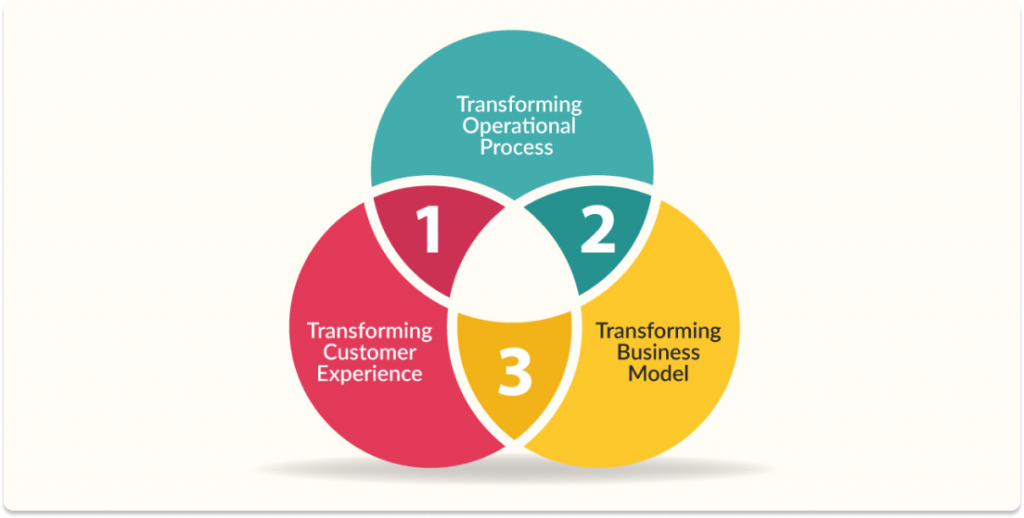
Digital transformation today has become a much talked about topic for enterprises looking for change. Executives in all industries are using digital advances such in analytics, mobility, social media and smart embedded devices so as to move away from traditional technologies.
But adopting digital transformation is a big change for companies which cannot happen overnight. In reality, companies are slow to adapt and improve the way they do business even in today’s competitive marketplace. To make a big difference in your digital transformations, enterprises need to know about the 3 pillars of digital transformation and implement them in business. The 3 pillars of digital transformation that they must consider is: Customer Experience, Operational Processes, and Business Model.
Adapting to changes based on these foundations are therefore important. Before moving forward, let’s take a close look at these three pillars of digital transformation and what they stand for.
1. Transforming Customer Experience

Customer experience is hands down one of the core pillars of digital transformation. The purpose of customer engagement is to acquire and maintain a long standing relationship as well as sell effectively. This requires real time engagement as well as cross channel communication to engage your customers on a deeper level, leveraging behavioural, emotional and situational context.
Custome experiences can now be transformed through artificial intelligence allowing organisations to connect with customers more effectively and personally. The most mature and most effective technologies in the AI space today are in the decision management, natural language processing (NLP), text analytics, and machine learning areas. They allow organizations to provide the type of experience the customer expects, balanced with the needs of the business – goals, margins, acquisition targets, top-line growth, etc.
2. Transforming Operational Process
Transforming your organization’s operational process can be a long and strenuous change, but adopting to digital transformation strategy for operations will make your operations more efficient so that you can react in real time to change business processes and scale operations.
Operational process transformation can create significant value and adopting technology in these areas is fast becoming table-stakes. Because these transformations tend to be focused efforts around specific areas of the business, it provides value at each stage of the chain, and this can be achieved through a better flow of information, collaboration and teamwork, elements in which digital transformation can assist in a very practical and assertive way.
3. Transforming Business Model

Right now most companies are pursuing digital technologies to transform traditional business models. The challenge has always been to blend the old with the new in a way that is efficient and productive. The ability to transform your business model in a growing digital world in a way that benefits all, needs a vision that be strategised and adopted.
Many traditional companies have branched out to producing digital products and merchandise that has proven to profitable in the market. And while stores still continue to function,the boom of e-commerce sites has changed the way customers shop now for a decade. Needless to say, by changing the fundamental building blocks of value, corporations can achieve business model transformation that open significant new opportunities for growth.
Complete digital transformation of an organization can take years to perfect. This is why traditional businesses are now regarding and pursuing digital transformation in a multi-dimensional way so as to fasten the transformation process while scaling business growth. It is important for the 3 pillars of digital transformation to be given a priority, because when Customer Experience, Operational Processes, and Business Model work within the same environment, it improves the customer experience and creates collaboration across companies.
Are you eager to embark on your digital business transformation journey but uncertain about the initial steps? Connect with our consultants at JOY IT Solutions for Digital Transformation Services – https://www.joyitconsulting.com/


